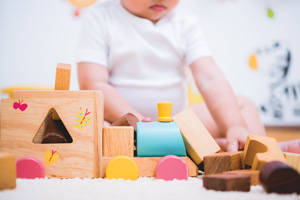
by Susan Luxford
Timeless Toys
Wooden toys- the freedom to explore, create and grow
It might be surprising to know that wooden toy brands have been around for a long time. Leicester based Lanka Kade and Surrey based Le Toy Van both celebrated 25 years in 2019 whist German brands like Goki and Heimess have been making wooden toys since the early 1970s. Despite their longevity, it is only in the most recent years that wooden toys have seen a revival and are experiencing an ever-growing popularity. But why?
There has been growing awareness of the value of unstructured open-ended play and wooden toys have often been designed with this in mind, enabling children’s imaginations and creativity to be boundless. These toys don’t have an obvious single use, instructions or rules giving children the ability to be in control of how they play, keeping their minds clear as they think through different scenarios or solve problems. By encouraging open-ended play, wooden toys can help develop a child’s reasoning and problem solving skills, social interactions, improve their hand/eye coordination and fine motor skills and aid speech development.
There’s been increasing health concerns about the chemicals used within plastic toys to make them pliable and colourful, that children then absorb through their mouths and skin. Despite regulations in place, toys made to unsafe levels are still commonly finding their way into homes. In 2018, 31% of toys sold in the EU were recalled over safety concerns with 25% of these having unsafe chemical levels1 – whilst 722,000 toys were seized and impounded by the EU in 20182. Wooden toys do not contain PVC or phthalates that cause endocrine (hormone) disruption, they are free of preservatives and formaldehyde, respiratory irritants linked to asthma and allergies and free
of Naphthalene and its chemical cousins, polycyclic aromatic hydrocarbons (PAHs), which are strongly suspected to cause cancer.
Parents are questioning whether previously popular electronic toys marketed as educational and interactively beneficial, are either. Noises and electronic features can interrupt a child’s thinking process and limit how far a child’s imagination can go. Overstimulation can make it difficult for the brain to think critically. Additionally, with parents now spending twice as much time with their children as 50 years ago and more time at home than playing outside, parents are seeking toys that foster a calmer home environment.
The issues of plastic pollution, waste and environmental damage are big issues we are all concerned about. 8.5 million3 new, perfectly good toys are thrown away every year in the UK, which then end up in landfills, incinerators or in the ocean. Wooden toys are robust, durable and repairable, will hold a child’s interest for longer and can become family heirlooms, yielding less waste. They can be recycled easily and will fully biodegrade harmlessly within 13 years. Wooden toys use minimal fossil fuels to create them and quality brands only use FSC woods, a global forest certification system that means the wood is not only renewably sourced but comes from responsibly managed forests that protect fragile ecosystems and respects local indigenous populations.
Last but not least, there is a growing interest in the impact our buying power has on the communities and workforces where manufacturing is taking place. Many wooden toy brands are already ahead in the toy industry for their sustainability and ethos to ethical practices. The majority are still family-owned independent companies and run charitable education foundations and reforestation programmes.
With spring now here, it’s the perfect time to declutter those shelves of unloved toys and the noisy ones that irritate you. Consider making your next purchase a wooden one, with no right or wrong, no levels, no batteries, no flashing lights or sound. Just the freedom to explore, create and grow.
2 https://eeb.org/more-banned-chemicals-in-toys-than-any-other-product-type/
3https://www.eastsussex.gov.uk/environment/rubbishandrecycling/factsandfigures/
Timeless Toys specialises in wooden toys and is at 103 Portland Road, Hove BN3 5DP – open from 10am to 5pm Tuesday to Saturday. For more information see Timeless Toys UK on Facebook.


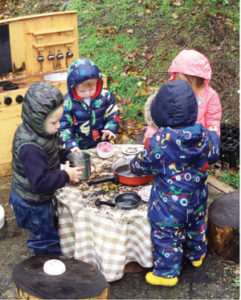 Forest School is a more sustained, long-term process which aims through positive outdoor experiences to encourage and inspire children to love the world around them. For preschool children, Forest School nurtures their sense of wonder and their curiosity about the world outside, closely entwined with the ideals of free-flow play and learning from play that underpin the child-centred learning ethos and areas that lie at the heart of the Early Years Foundation Stage which runs from birth to five years of age. Away from their school or nursery, they have adventures in natural habitats such as woods, rivers and streams, ponds and beaches. Supervised with the lightest of touches by staff, the children have the freedom to discover what fascinates them in nature and to respond spontaneously to the environment they are exploring.
Forest School is a more sustained, long-term process which aims through positive outdoor experiences to encourage and inspire children to love the world around them. For preschool children, Forest School nurtures their sense of wonder and their curiosity about the world outside, closely entwined with the ideals of free-flow play and learning from play that underpin the child-centred learning ethos and areas that lie at the heart of the Early Years Foundation Stage which runs from birth to five years of age. Away from their school or nursery, they have adventures in natural habitats such as woods, rivers and streams, ponds and beaches. Supervised with the lightest of touches by staff, the children have the freedom to discover what fascinates them in nature and to respond spontaneously to the environment they are exploring.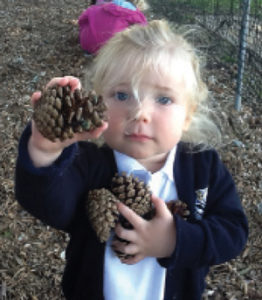

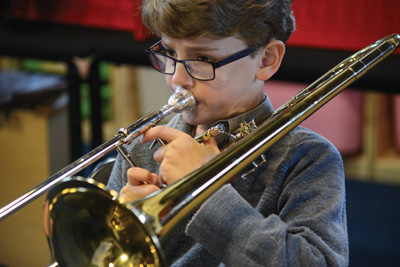
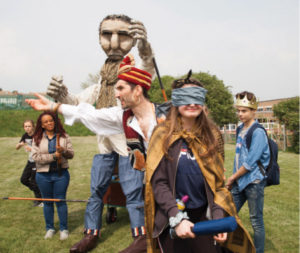 Through events like Brighton Festival, young people can explore, discover and participate in the arts. For 30 years the Children’s Parade has officially marked the start of Brighton Festival, with over 5,000 participants, including 3,473 school children, stepping into show stopping costumes they have designed and made themselves. Around 10,000 people come along to see the parade and be part of the largest annual children’s event in the UK. The parade is a unique event produced by community arts organisation, Same Sky, which offers thousands of young people the chance to come together in creations they’ve designed around a central theme, giving them a sense of belonging. In 2020, the Children’s Parade theme is Nature’s Marvels, offering a platform for participants to think more about the world and environment around them.
Through events like Brighton Festival, young people can explore, discover and participate in the arts. For 30 years the Children’s Parade has officially marked the start of Brighton Festival, with over 5,000 participants, including 3,473 school children, stepping into show stopping costumes they have designed and made themselves. Around 10,000 people come along to see the parade and be part of the largest annual children’s event in the UK. The parade is a unique event produced by community arts organisation, Same Sky, which offers thousands of young people the chance to come together in creations they’ve designed around a central theme, giving them a sense of belonging. In 2020, the Children’s Parade theme is Nature’s Marvels, offering a platform for participants to think more about the world and environment around them.
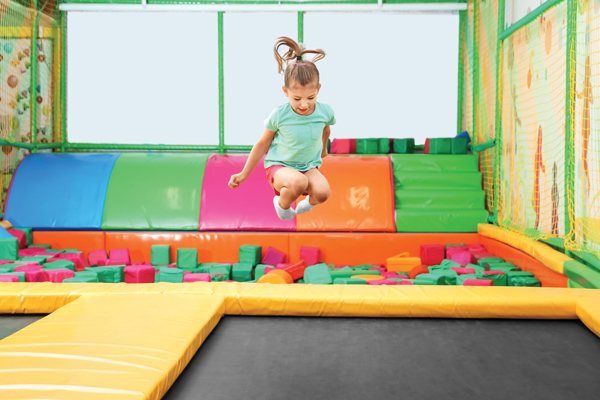
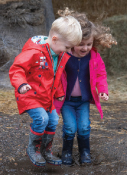 If it’s not possible to escape the colder months here in the UK and jet off to sunnier climes this year, then we might all just need to be a bit more creative in order to make sure we can still enjoy the great outdoors.
If it’s not possible to escape the colder months here in the UK and jet off to sunnier climes this year, then we might all just need to be a bit more creative in order to make sure we can still enjoy the great outdoors.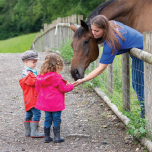 Leave the picnic at home
Leave the picnic at home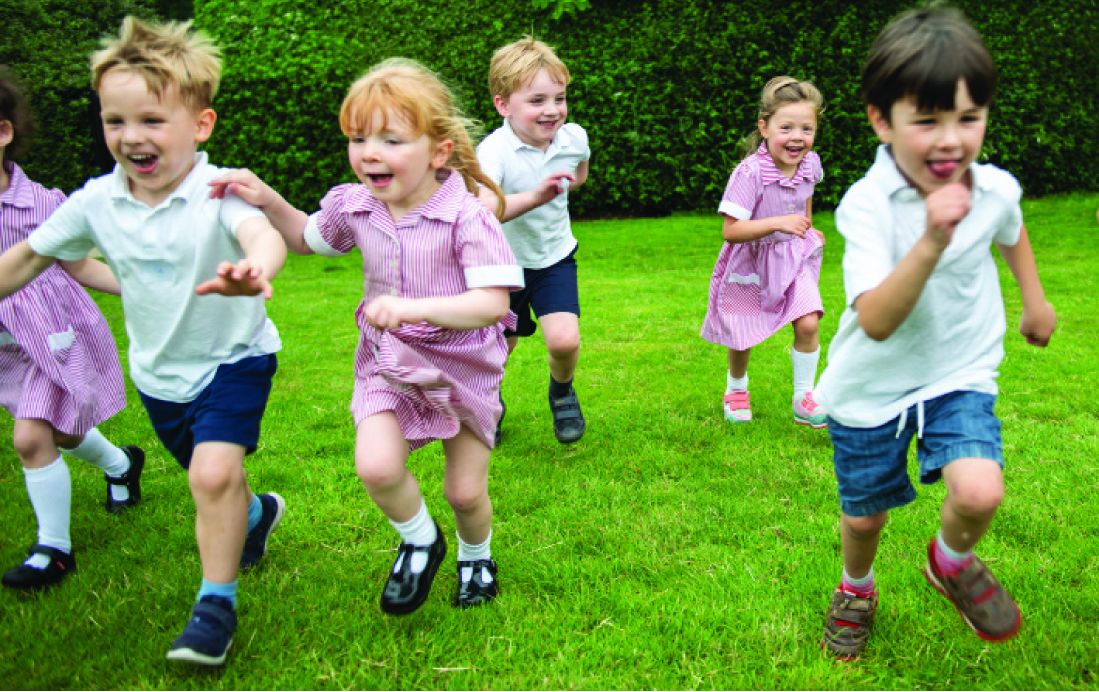
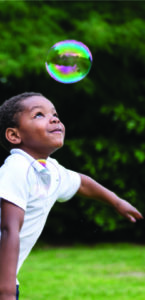 So how do we help a child become that independent person? As adults we need to find a balance between not overprotecting our children, or pressurising them to run before they can walk; our expectations need to be realistic, and we must bear in mind that children will always develop at very different rates. The ‘Early Years Development Matters’ takes us through a child’s Personal, Social and Emotional Development and exemplifies the ‘Characteristics of Effective Learning’ from birth to five years old; some good ideas and guidance may be found in the DfE document ‘What to expect, when?’ which has been developed for parents and carers. Furthermore, it is important that we encourage healthy risk taking, through climbing trees or doing something new, and the opportunity to embrace mistakes. In the words of Carol Dweck: “What we do not want is to encourage a fixed mind set where a child feels they are unable to do something for themselves so they will not try, we want a child who is comfortable trying for themselves and develops a growth mind set – they will experience the feeling that before success comes failure after failure. But that hard work and persistence works.”
So how do we help a child become that independent person? As adults we need to find a balance between not overprotecting our children, or pressurising them to run before they can walk; our expectations need to be realistic, and we must bear in mind that children will always develop at very different rates. The ‘Early Years Development Matters’ takes us through a child’s Personal, Social and Emotional Development and exemplifies the ‘Characteristics of Effective Learning’ from birth to five years old; some good ideas and guidance may be found in the DfE document ‘What to expect, when?’ which has been developed for parents and carers. Furthermore, it is important that we encourage healthy risk taking, through climbing trees or doing something new, and the opportunity to embrace mistakes. In the words of Carol Dweck: “What we do not want is to encourage a fixed mind set where a child feels they are unable to do something for themselves so they will not try, we want a child who is comfortable trying for themselves and develops a growth mind set – they will experience the feeling that before success comes failure after failure. But that hard work and persistence works.”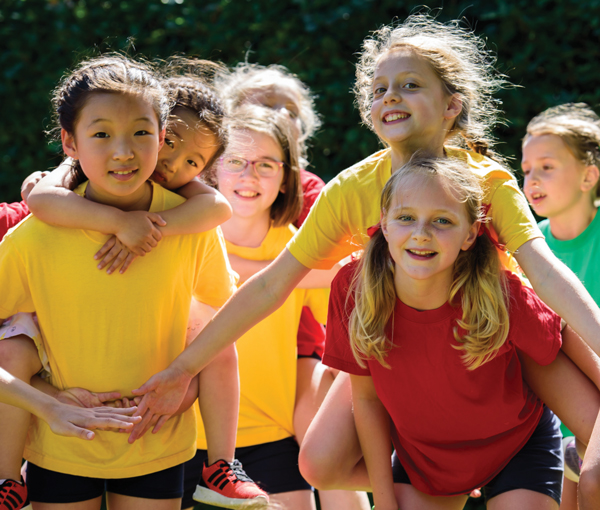
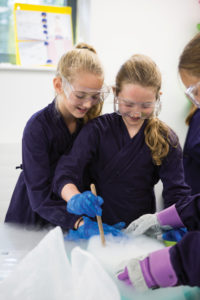 In the first term, establish a good rapport with your child’s teacher and encourage their early reading and writing at home as advised by the school. Ask what happens in the book that they are reading, and help with extending their vocabulary to include words such as ‘first, second, finally.’ Don’t be scared to use the correct vocabulary –
In the first term, establish a good rapport with your child’s teacher and encourage their early reading and writing at home as advised by the school. Ask what happens in the book that they are reading, and help with extending their vocabulary to include words such as ‘first, second, finally.’ Don’t be scared to use the correct vocabulary –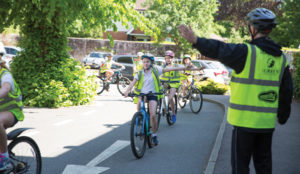 the first year your child will be very attached to their first teacher and the school will prepare them for moving on to a new class, possibly with new pupils arriving too which can change the dynamic amongst the class. Over the first long summer break encourage more constructive play which requires your child to build things, take things apart and put them back together. Go on walks, build dens in the garden, start to ride a bike with stabilisers. Check table manners and correct use of cutlery and ‘please and thank yous.’ Use the days of the week more and continue with reading and basic writing.
the first year your child will be very attached to their first teacher and the school will prepare them for moving on to a new class, possibly with new pupils arriving too which can change the dynamic amongst the class. Over the first long summer break encourage more constructive play which requires your child to build things, take things apart and put them back together. Go on walks, build dens in the garden, start to ride a bike with stabilisers. Check table manners and correct use of cutlery and ‘please and thank yous.’ Use the days of the week more and continue with reading and basic writing.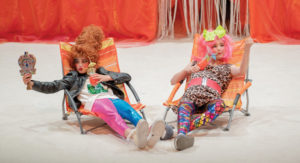 Then come swimming lessons, possibly picking up an instrument for the first time, presenting in assembly and taking on minor roles of responsibility within the class (taking a message to the office or assisting with classroom chores). You will increasingly feel that you are not there for every milestone moment. This is important as your child will be forming a self-esteem based on their sense of their own achievements and by six we hope finding intrinsic motivation. They will be working out that effort impacts outcomes and they will be turning to peers to share their achievements. Winning the sack race, learning their times tables, holding the door open for a visitor, sharing their snack at break are all equally important.
Then come swimming lessons, possibly picking up an instrument for the first time, presenting in assembly and taking on minor roles of responsibility within the class (taking a message to the office or assisting with classroom chores). You will increasingly feel that you are not there for every milestone moment. This is important as your child will be forming a self-esteem based on their sense of their own achievements and by six we hope finding intrinsic motivation. They will be working out that effort impacts outcomes and they will be turning to peers to share their achievements. Winning the sack race, learning their times tables, holding the door open for a visitor, sharing their snack at break are all equally important.









